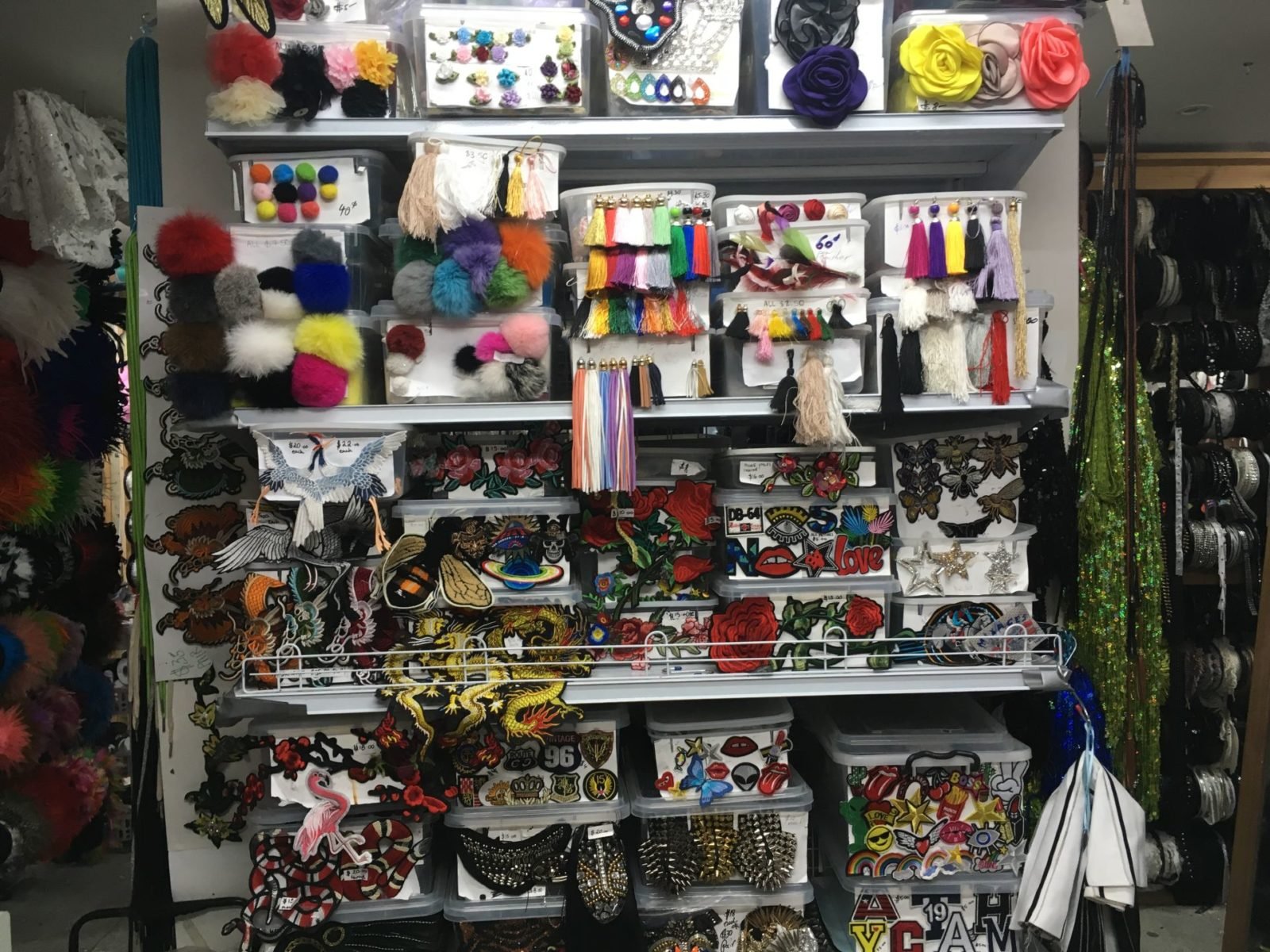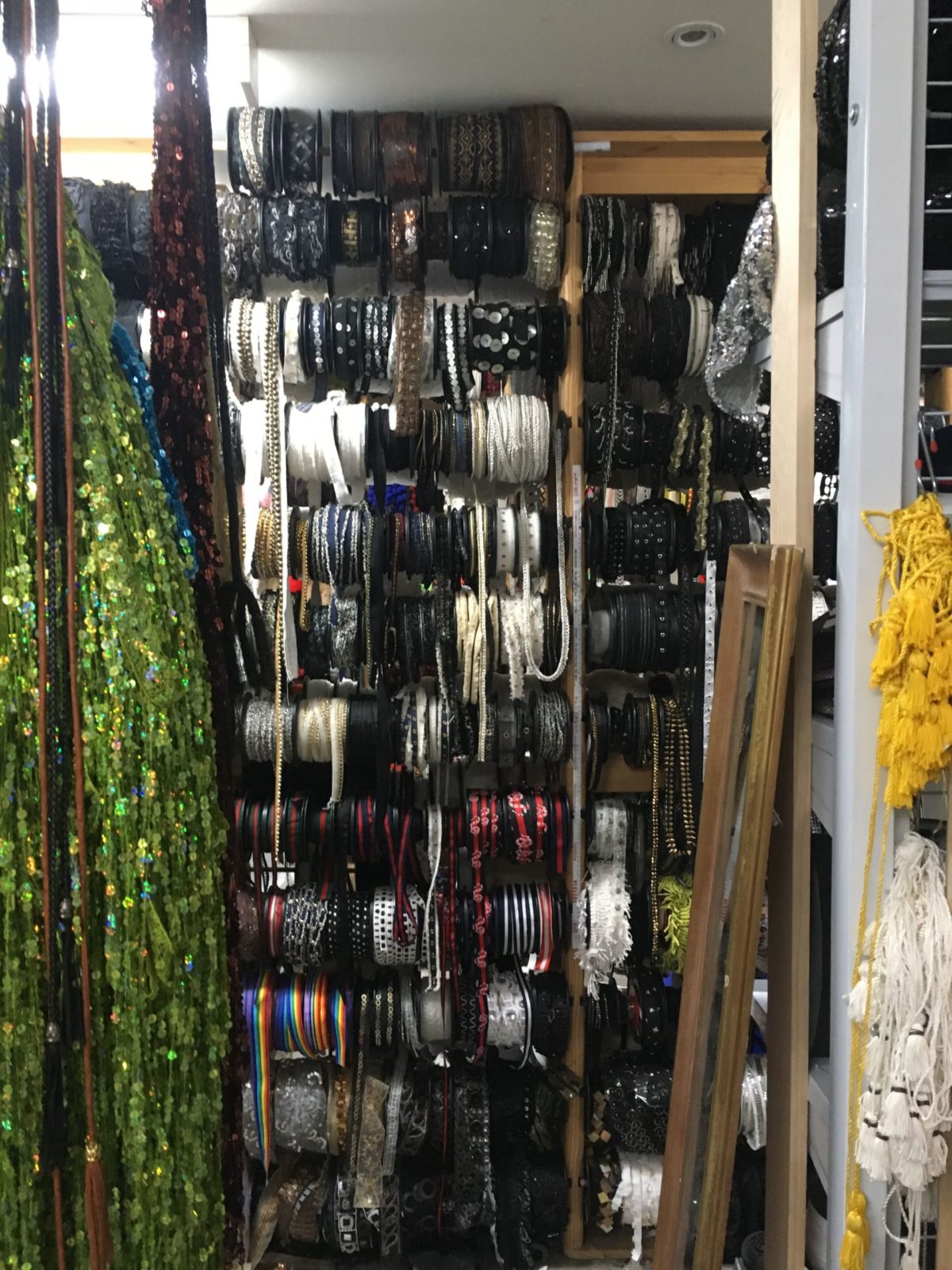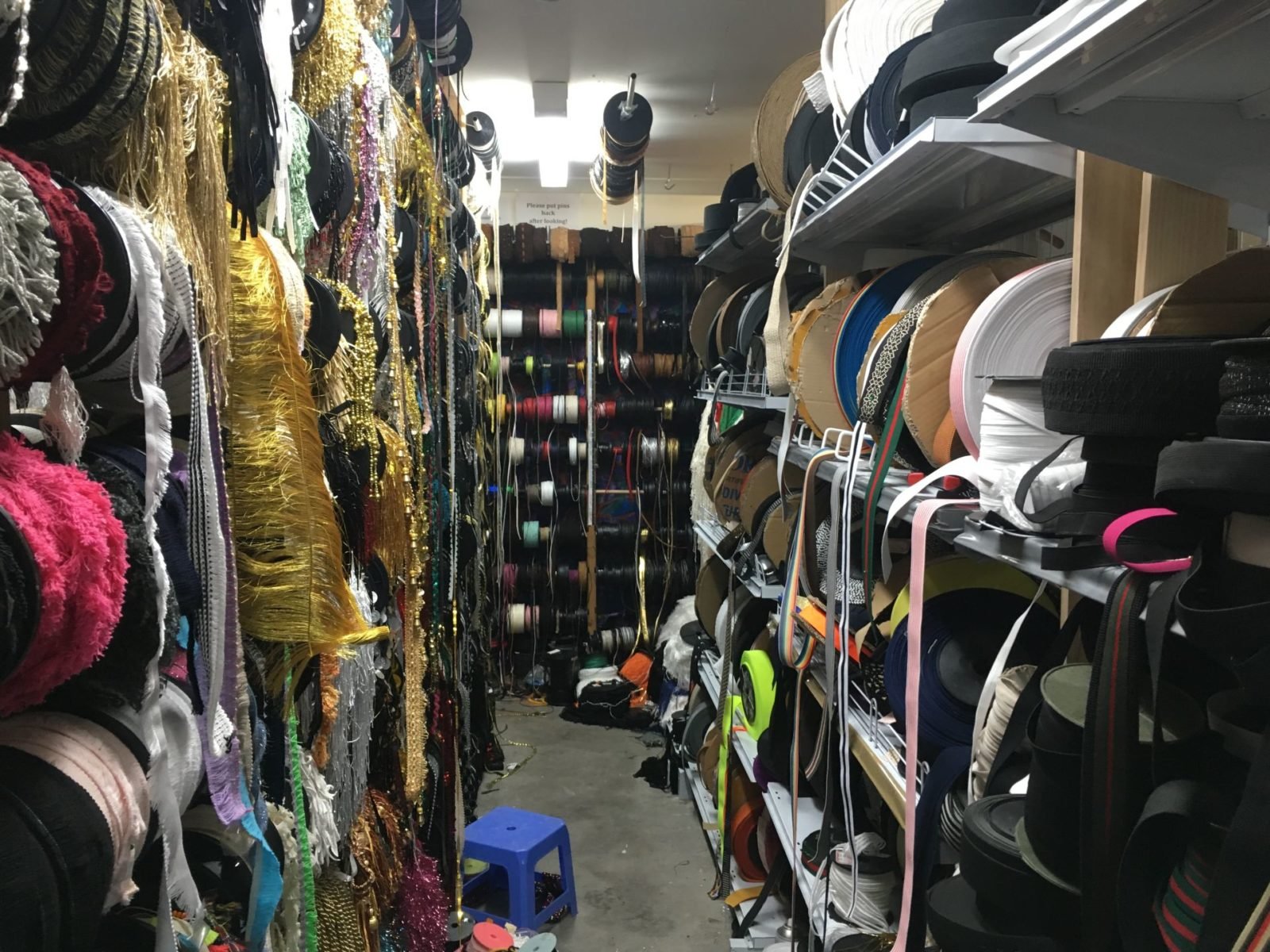On a nondescript building in the inner Melbourne suburb of Fitzroy is a door haphazardly decorated with buttons.
A quick look to the sign on the right and you’ll see, perhaps rather unsurprisingly, it’s a button store – Jimmy Buttons – that has been owned by Greek Australian Jimmy Ketoglidis for over 30 years.
To those that haven’t visited his George Street treasure trove, you’ll soon see it’s a functional mess: walls are lined with seemingly infinite styles of buttons (he says he has over a million), lace, patches, pins, threads, two pups, staff, and an upstairs, filled with … yes, you got it.
“It’s all in my head. That’s just how I’ve been brought up. You can ask me where something is, and I can take you straight there,” Mr Ketoglidis, more commonly and aptly known as Jimmy Buttons, said while twirling some ribbon in his hands.
“But I’ve always been like that. Being a production manager you have to be organised. I know it’s a bit messy here but I still know where everything is. We try to clean up all the time but it just never ends.”
Born in Australia to Greek parents from Kozani, Mr Ketoglidis’ story started with buttons. He was working as a production manager for a wholesaler in the rag trade and noticed that orders were taking too long to be completed.
So he took matters into his own hands: he bought a button machine, some dyes and made the orders for the company he was working for.
“People heard how quick I was and I actually had to leave work,” he laughs.
“After leaving, and no wage coming in, I had to make my business work. I borrowed a car and rang – back then using the yellow pages – every manufacturer and basically that’s how I started.
“I’d go out at 9.00 am to the Fitzroy and Collingwood area because that’s where all the rag trade was. I’d get orders and at 5.00 pm go back home and start preparing them,” he said adding that his partner at the time was helping him make the buttons for his various clients.
While his business was flourishing, eventually things came to a halt when foreign imports began to take a toll on his profits.
Mr Ketoglidis alleges he was losing up to 60 per cent in sales.
“I used to have about nine staff when everything was made in Australia. Once the imports started I was down to about four. Hardly anything is made in Australia,” he laments. “You’d be lucky to get 10 per cent made in Australia.” Mr Ketoglidis decided to go retail.
“I started asking people what they wanted trims wise and I started bringing the trims in. That’s how the haberdashery started from just asking people what they want and bringing in what they needed,” Mr Ketoglidis said.



Competitors have always been his biggest challenge, but now he says, he doesn’t worry about it.
“I stick to myself, I bring my own styles in, I don’t copy anyone else and that way you have no competition. If you have something different, that’s the best way,” he said.
And now the shop has become more than just a retail business for Mr Ketoglidis – it’s an act of community service and has given him a newfound sense of confidence.
“I was very introverted and I can entertain people now. At home I won’t do that. Here I just love it. [My business] gives me a lease on life and brings me out of my shell.”
